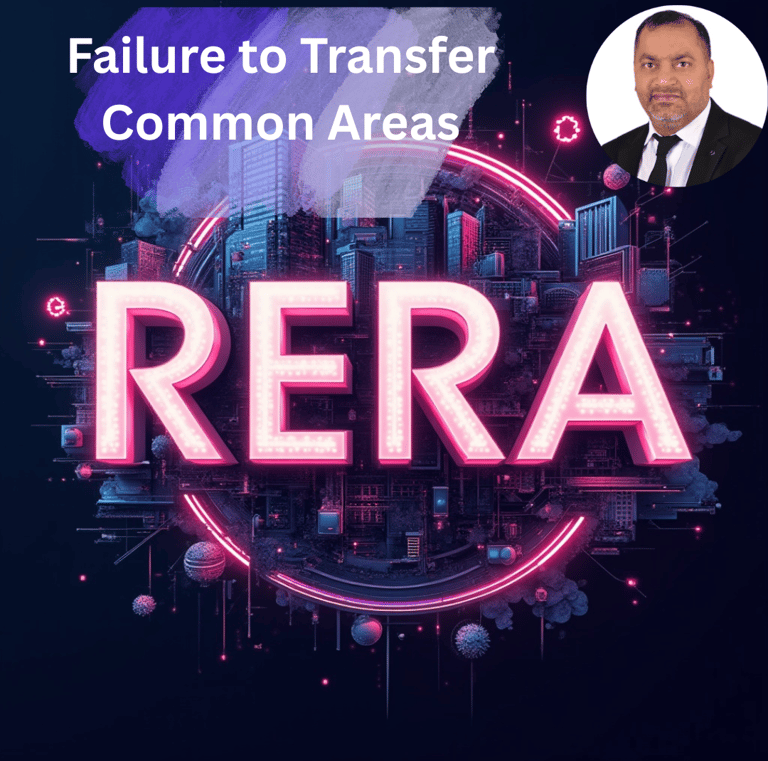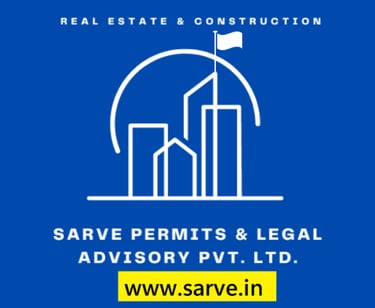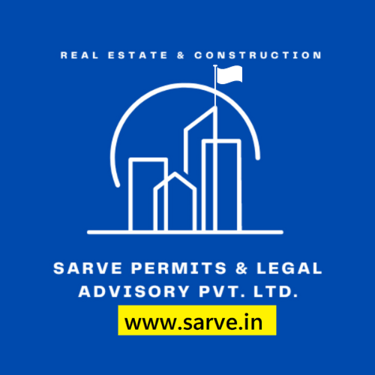Book available on Amazon: Link ……..https://amzn.in/d/2bUvej0
Builder's Failure to Transfer Common Areas, Amenities, and Facilities Under RERA: A Comprehensive Guide for Homebuyers


Are you a homebuyer dealing with a promoter or builder who has failed to hand over common areas, amenities, and facilities in your real estate project? This issue, often referred to as failure to transfer common areas by promoter builder under RERA, is a common grievance in India's real estate sector. The Real Estate (Regulation and Development) Act, 2016 (RERA), mandates that builders must transfer these essential components to the association of allottees promptly. Delays or refusals can lead to significant inconveniences, financial losses, and legal battles. In this guide, we'll explore RERA promoter obligations for common area transfer, the consequences of non-compliance, and practical steps like filing RERA complaint for builder not transferring amenities. Whether you're searching for "builder delaying handover of facilities" or "legal action against promoter for common area failure**," this article provides actionable insights to protect your rights.
Understanding Common Areas, Amenities, and Facilities Under RERA
Under RERA, common areas in real estate projects are defined broadly to include shared spaces and infrastructure essential for residents' use. According to Section 2(n) of the RERA Act, these encompass:
- The entire project land (or phase-specific land).
- Staircases, lifts, lobbies, fire escapes, entrances, and exits.
- Basements, terraces, parks, play areas, open parking, and storage spaces.
- Central services like electricity, water, sanitation, and renewable energy installations.
- Community facilities such as clubhouses, gyms, swimming pools, and landscaped gardens.
- Other necessary portions for maintenance and safety.
Amenities and facilities under RERA refer to promised features in the builder-buyer agreement, brochures, and sanctioned plans, including gyms, pools, children's play areas, and parking. Notably, covered car parking is excluded from common areas, but open parking is included. Failure to transfer these not only violates the agreement but also deprives allottees of their rightful ownership and usage.
Legal Obligations of the Promoter/Builder for Transfer
RERA imposes strict duties on promoters (builders) to ensure transparency and accountability. Key provisions include:
- Section 11(4)(e): The promoter must enable the formation of an association of allottees, society, or cooperative within three months of the majority of allottees booking their units (if no local laws specify otherwise).
- Section 17(1) and (2): After obtaining the Occupancy Certificate (OC) and handing over physical possession, the promoter must transfer common areas, amenities, facilities, and necessary documents to the association. In the absence of local laws, this must happen within 30 days of the OC.
- Section 14(1) and (3): The builder must adhere to sanctioned plans and specifications for amenities. A defect liability period (typically 5 years for structural defects) starts from handover, and delays in transfer extend this period.
The promoter is also responsible for transferring documents like title deeds, sanctioned plans, NOCs, maintenance records, and financials (e.g., corpus fund). If managing the project for the first 12 months post-handover, they do so under the association's supervision. State-specific variations may apply; for instance, in Karnataka, association formation follows local apartment ownership laws.
Consequences of Builder's Failure to Transfer
When a builder commits promoter failure to hand over common facilities, it breaches RERA, leading to:
- Penalties and Compensation: Under Section 18, allottees can claim interest on delays or compensation for undelivered amenities.
- Extended Liability: Delays prolong the defect liability period, holding the builder accountable longer.
- Legal Actions: The association can file complaints with RERA authorities, potentially resulting in fines up to 5% of project cost or project revocation.
- Financial Impacts: Builders may face withheld payments, refunds, or lawsuits in consumer courts if RERA doesn't resolve the issue.
Such failures erode trust and can devalue the property, affecting resale potential.
Steps to Take If Builder Fails to Transfer Common Areas and Amenities
If you're facing builder not transferring common areas under RERA, act systematically:
1. Review the Builder-Buyer Agreement: Check clauses on amenities, timelines, and transfer obligations.
2. Gather Evidence: Collect agreements, brochures, emails, payment proofs, and photos of incomplete facilities.
3. Contact the Builder: Send a written notice demanding handover and a timeline for compliance.
4. Issue Legal Notice: If no response, consult a lawyer to send a formal notice.
5. Form the Association: Ensure the allottees' association is formed to collectively pursue the matter.
6. File a RERA Complaint: Approach the state RERA authority for enforcement.
7. Conduct Due Diligence: During handover (if partial), verify documents and inspect facilities for defects.
For delays, approach consumer forums or courts if RERA remedies are insufficient.
How to File a RERA Complaint for Failure to Transfer
Filing RERA complaint for common area transfer failure is straightforward and online in most states:
1. Visit State RERA Portal: Log in or register on the official site (e.g., Maharashtra RERA, Karnataka RERA).
2. Submit Complaint Form: Detail the grievance, project registration number, and relief sought (e.g., handover, compensation).
3. Upload Documents: Attach required proofs.
4. Pay Fee: Typically ₹1,000–₹5,000, depending on the state.
5. Attend Hearings: Respond to notices; resolutions often occur within 60 days.
Remedies may include forced handover, refunds with interest, or penalties on the builder.
## Documents Required for Complaint and Handover
Here's a checklist of documents for RERA complaint against builder for amenities transfer:
| Document Type | Examples |
| Legal Agreements | Builder-buyer agreement, sale deed |
| Project Proofs | RERA registration certificate, sanctioned plans |
| Financial Records | Payment receipts, corpus fund details |
| Correspondence | Emails, legal notices to builder |
| Evidence of Failure | Photos of incomplete amenities, snag lists |
| Certifications | OC, NOCs from fire, pollution boards |
| Association Docs | Formation deeds, member lists |
Include technical drawings, AMCs, and insurance policies for comprehensive claims.
FAQs on Builder's Failure to Transfer Common Areas Under RERA
1. What is the timeline for promoter to transfer common areas?
Within 30 days of OC if no local laws apply, per Section 17.
2. Can I claim compensation for delayed amenities handover?
Yes, under Section 18, including interest on payments.
3. What if the builder refuses to form the association?
File a complaint with RERA; it's their obligation under Section 11.
4. Are open parking areas considered common under RERA?
Yes, but covered parking is not.
5. What remedies if builder fails post-handover?
Enforce defect repairs during liability period or file further complaints.
Navigating RERA violations by builder for facilities transfer can be challenging, but knowing your rights empowers you. Consult a legal expert for personalized advice and act promptly to avoid limitations. If you're in Maharashtra, Karnataka, or elsewhere, check your state RERA portal for specifics. Protect your investment—don't let builder negligence go unchecked!
We charge nominal fees to assist you in drafting your RERA case in legal format, ensuring your demands and prayers are included.
Do not hesitate to contact us for better guidance and support.
Written and Complied by: Advocate Rajeev K Jha
Disclaimers: All opinions and information shared are personal.
#sarvepermits #reraadvocates #realestateadvocates #propertylawyers #propertyadvocates #realestatelaws #realestateinsights #realestate
North India - Delhi NCR
UTTAR PRADESH : B-122, Sector-Omicron-1A, Greater Noida, Gautam Budh Nagar, Uttar Pradesh, India - 201310
Hours
I-V 9:00-18:00
VI - VII Closed


Copyright
We have @SarvePermits & Legal Advisory Pvt Ltd's original, exclusive and copyright protected content for you. Don't miss out on the opportunity and get access to our informative content today! #CopyrightProtected #OriginalContent #SarvePermitsAndLegal. If you have any questions about using our content, please contact us for permission. #copyright #protectourproperty #IP #SarvePermitsAndLegalAdvisoryPrivateLimited.
Western India - Maharashtra
MUMBAI : Office No.- 1408, Ghanshyam Enclave, Opp. Lalji Pada Police Station, Link Road, Kandivali West, Mumbai
South India - Karnataka
BANGALORE : B-2, Ground Floor, Museum Terrace, 29 Museum Road, Bangalore-560001
RESIDENCE : 50808, Tower 5, Bhartiya City Nikoo Homes 1, Thanisandra Road, Kannur, Bangalore - 560064
Eastern India - Jharkhand
BOKARO : 689, Sector-1/C, Bokaro Steel City, Dist.- Bokaro, Jharkhand -827001
